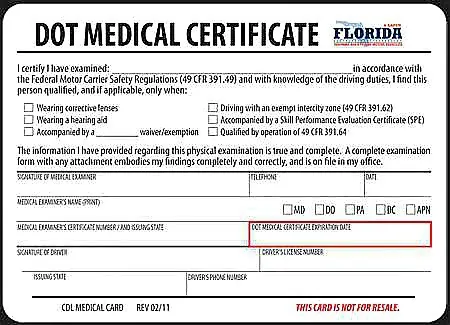The high cost of CDL training is a big concern for many aspiring commercial drivers. But don’t worry! Due to the high demand for skilled drivers, numerous grants are available to help cover CDL training expenses. In this article, you will find some of the best grants and funding opportunities, including overview information and eligibility criteria. Carefully review all the grants listed below, and you will find suitable funding to pursue your funding. Let’s get started!
What are the grants for CDL training?
The grants for CDL training cover or reduce a portion of the expenses related to obtaining a CDL, providing financial relief for qualified applicants. There are different types of grants available, offering several ways to reduce out-of-pocket costs for aspiring drivers. Below, we list the major types of grants and the basic eligibility criteria for each:
1. Military grants for CDL training
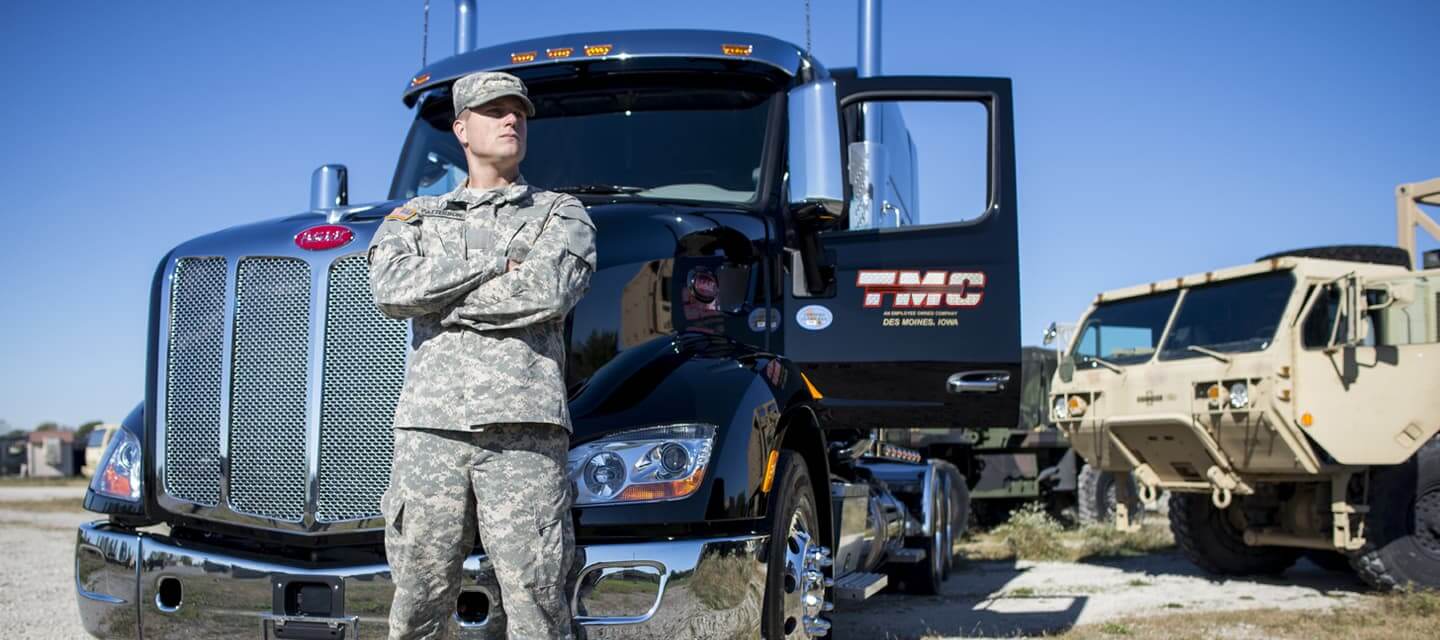
Many special funding opportunities are available for active military members, veterans, and their families to obtain CDL training. These programs not only pay tuition but also offer additional financial incentives, making commercial driving careers more accessible to military veterans. Following is the list of major funding programs and their eligibility requirements:
Veterans Post 9/11 GI Bill for CDL training
Overview: The Post-9/11 GI Bill gives generous benefits to any veteran looking into getting CDL training. This program covers full tuition and even includes a monthly stipend of up to $1,400 for living expenses during the program. In some cases, this benefit can be transferred to spouses or children.
Who is eligible:
- Must have served at least 90 days of active duty since September 10, 2001.
- Honorably discharged veterans.
- Be a spouse or child of the veteran if benefits can be transferred.
Veterans Rapid Retraining Assistance Program (VRRAP)
Overview: VRRAP is a benefit for veterans who have been affected due to COVID-19. Veterans will be given funding assistance toward CDL training. A veteran can get the full cost of CDL training through this program to enter a stable profession.
Who is eligible:
- Veterans who have been affected by COVID-19.
- Veterans not receiving GI Bill benefits.
- Veterans not receiving VA retirement benefits.
Montgomery GI Bill – Active Duty (MGIB-AD)
Overview: The MGIB-AD is a monthly education benefit for vocational training, such as CDL training. This versatile benefit can be used for a range of programs, including apprenticeships.
Who is eligible:
- Veterans who have at least two years of active duty
- Honorably discharged veterans
- Must use MGIB-AD benefits within 10 years from the date of discharge
Vocational Rehabilitation and Employment (VR&E)
This VR&E program provides personalized support to veterans with service-connected disabilities for CDL training, including tuition counseling, and job placement. This program aims to help veterans find satisfying employment and overcome any barriers caused by their disabilities.
Who is eligible:
- Veterans rated by VA with a compensable service-connected disability
- Veterans needing VR&E services to achieve employment goals due to their disability
For more information on grant opportunities for veterans, you can check our post on free CDL training for veterans.
2. CDL training scholarships
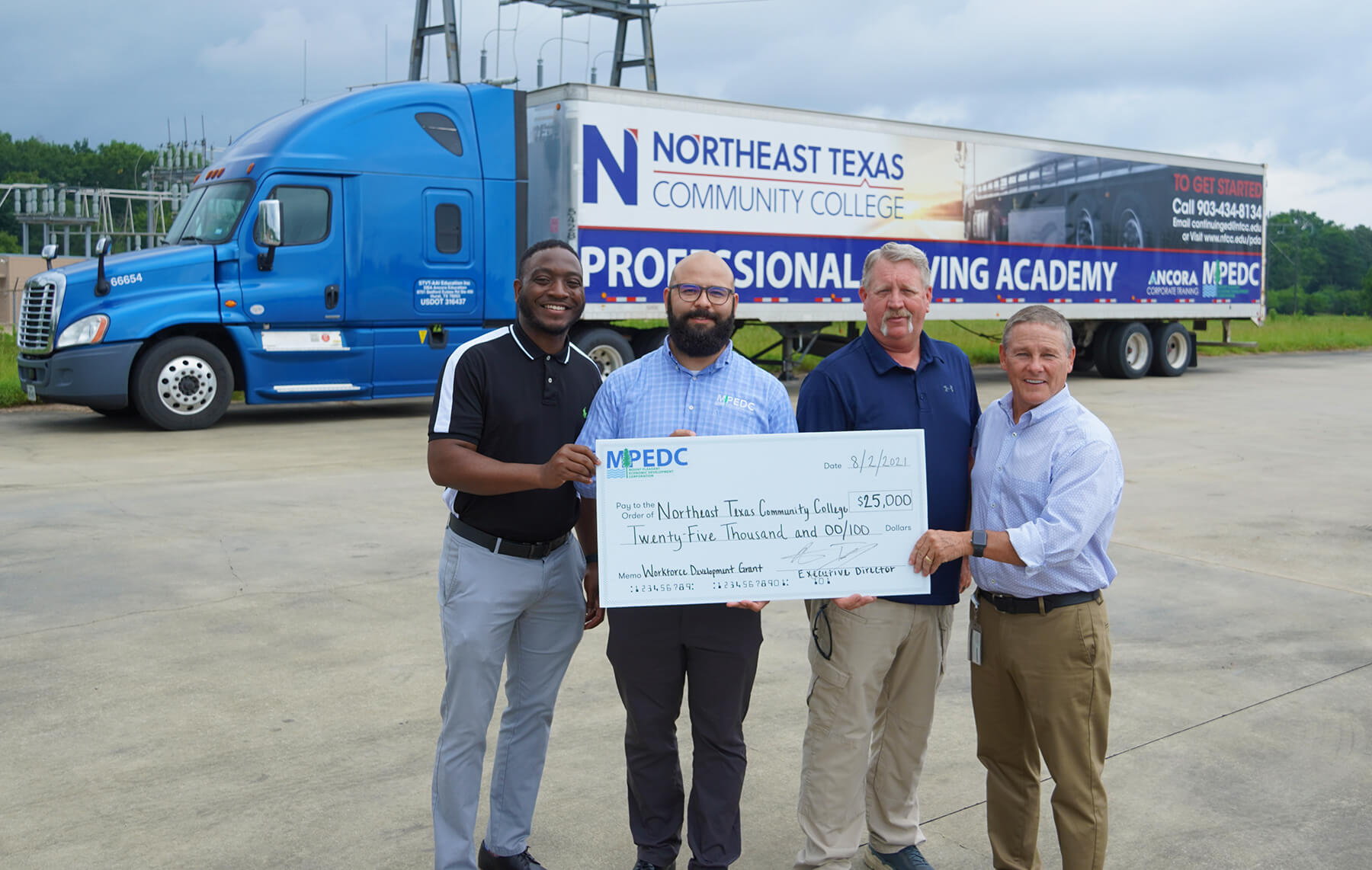
There are several scholarship opportunities for individuals seeking for CDL license, especially those showing financial need, dedication to the trucking industry, or relevant work experience. These scholarships help lower the cost of tuition, making the CDL training program accessible for individuals. Here are some notable scholarships for CDL training:
Tennessee Trucking Foundation Scholarship Fund
Overview: The Tennessee Trucking Foundation Scholarship Fund provides scholarships for undergraduate students, residents of Tennessee, or relatives of a Tennessee Trucking Associate member. Students must be pursuing a degree in a tucking-related field and demonstrate significant need to award the degree.
Who is eligible:
- Must be residents of Tennessee
- Must be members of Tennessee Trucking Associate or;
- Must be a student entering the sophomore or final year at an accredited Tennessee college or university
- Must submit academic transcript, personal references, financial information, and letters of recommendation
Driver Resource Center Future of Trucking Scholarship
The Driver Resource Center Future of Trucking Scholarship supports beginners in the trucking industry careers to become professionals. This is open to both men and women, covering or assisting fees for CDL training.
Who is eligible:
- Be legal residents of the ST. Louis, MO area
- Desire to pursue the profession of trucking
- Must demonstrate commitment to the trucking industry
Women in Trucking Foundation Scholarship
Overview: The Women in Trucking Foundation aims to support women in the trucking profession. It funds both students pursuing their CDL and women advancing higher education in trucking-related fields.
Who is eligible:
- Women pursuing a trucking career
- Must demonstrate potential for a trucking career commitment
Truckload Carriers Association Scholarship (TCA)
Overview: The Truckload Carriers Association Scholarship focuses on students studying any form of trucking-related course work, as well as those earning their CDL. The scholarship offers tuition to post-high school students.
Who is eligible:
- Students who intend to enter a career in the trucking industry
- Individuals seeking CDL training or other trucking education beyond high school
- Must demonstrate a desire for a long-term career in the trucking industry
Minnesota Trucking Association (MTA) Scholarship
Overview: The Minnesota Trucking Association offers scholarships to students enrolled in either a trucking driving or truck technician program. All of their scholarships are donated and then awarded to those seeking a career in the trucking industry, helping cover tuition costs.
Who is eligible:
- Students who are currently training in truck driving or truck technician programs
- Must demonstrate financial need
- Must be committed to seeking a career within the trucking industry
3. WIOA grants for CDL training
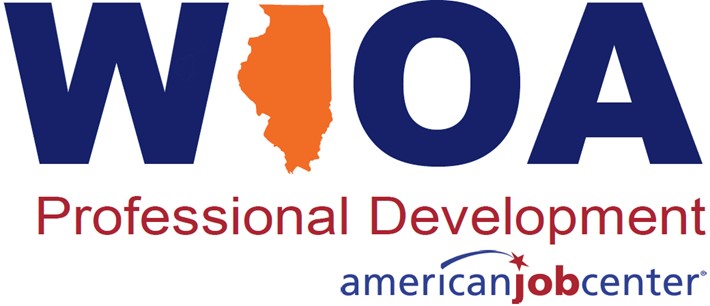
The Workforce Innovation and Opportunity Act (WIOA) is a federal initiative that finances employment and training programs to better equip workers with the skills needed to attain steady work and advance their careers. This grant funds a wide range of occupational programs, including CDL training, particularly for those who are laid off, unemployed, or low-income. The main WIOA grants that you can receive for CDL training include:
WIOA Adults Program Grant
Overview: This program provides financial support to low-income candidates for CDL training to further their job prospects in high-demand employment areas. Local job centers can combine this grant with other programs to increase available funding, covering tuition, housing, and other commuting-related expenses.
Who is eligible:
- Low-income earners
- Any adult above 18 years old seeking employment training
- Application within the relevant area of the income brackets
WIOA Youths Program Grant
Overview: The Youth Program Grant offers sponsorship to younger individuals who are out-of-school youth facing education and employment barriers, especially those who are interested in trucking and other in-demand careers. This grant covers tuition for CDL training, and additional fees such as housing, and transportation. Ad exam fees, helping individuals start a trucking career after meeting minimum age requirements.
Who is eligible:
- Youths between 14-24 years old face difficulties in continuing schooling or finding employment
Indian and Native American Grant
Overview: This grant focuses only on providing job employment and training to Native Americans, Alaska Natives, and Native Hawaiians by offering CDL training as well as other career enhancement programs. This program aims to equip these communities with the skills needed to acquire lucrative and consistent jobs within the trucking industry.
Who is eligible:
- Be Native American, Alaska Native, and Native Hawaiian
- Be unemployed or low-income ears
- Desire to acquire skills in high-demand areas, such as trucking
WIOA Reentry Employment Opportunities (REO)
Overview: This grant offers money to migrant and seasonal farmworkers for non-agricultural career skills, for example, CDL training. Tuition, course materials, and transportation costs can be covered by this grant to help workers in stable and better-paying jobs related to trucking.
Who is eligible:
- Be migrant and seasonal workers
- Dependents of eligible farmworkers
- Those looking for job skills in other employment than agriculture
WIOA Dislocated Worker Program Grant
Overview: This grant is designed for individuals who have been dislocated from their work due to layoffs or closure of business. It provides comprehensive support for CDL training, helping eligible applicants back into the workforce. The tuition, program fees, and some licensing exams are included under the grant.
Who is eligible:
- Workers who are unemployed due to layoffs or lost jobs but no fault of their own
- Those having experienced economic downturns or company closures
- Individuals unlikely to retain the same former industry or occupation
WIOA Disaster Relief and Emergency Relief Grant
Overview: The DRER Grant assists individuals impacted by natural disasters or other emergencies in retraining for new jobs, especially in high-demand industries like commercial trucking. Some of the costs that could be covered with this grant include tuition, materials, and transportation to and from training sites, which is critical for displaced individuals.
Who is eligible:
- Individuals directly impacted by federally declared disasters
- Those applicants who seek new job skills for post-disaster employment stability
- Those displaced from employment for reasons beyond their control and looking for training to find jobs in robust sectors such as trucking.
Beyond these WIOA grants for the unemployed, The U.S. federals and states have established several grants for unemployed citizens, helping them get back into the workforce and increase their living. For more information about these programs, you can check our Free CDL training for the unemployed.
4. Trade Adjustment Assistance (TAA) for CDL training
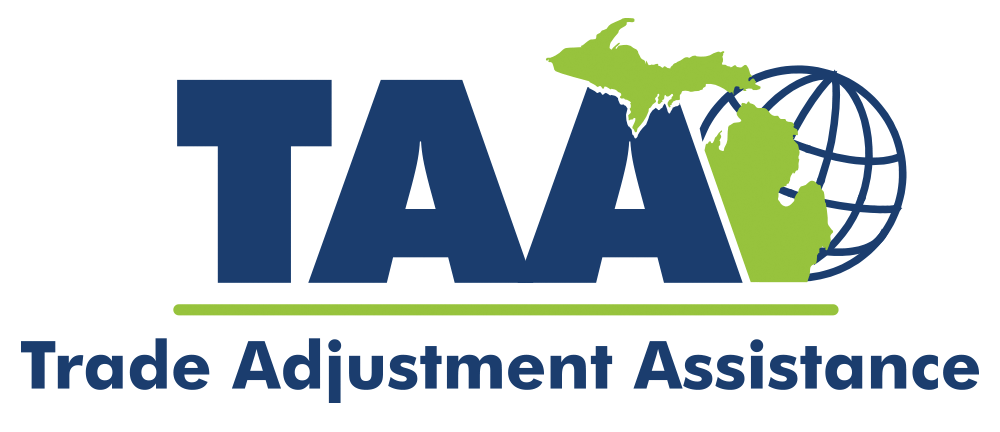
Overview: The TAA program supports workers who have lost their jobs as a result of foreign trade. Eligible workers can receive grants for CDL training to assist them in finding employment. The TAA will provide you with a career planner to guide you through the training process, helping you locate a suitable CDL program that fits your skills and career goals.
Who is eligible:
- Be laid off due to foreign trade
- Face challenges finding employment
- Ready to start training within 26 weeks of layoff
5. Pell Grant for CDL training

Overview: Pell Grants are federal funds for low-income workers to pay for training programs longer than two weeks. This grant can be used toward a CDL program at an accredited community college. The financial assistance is determined by family income and the Expected Family Contribution (EFC).
Who is eligible:
- Be a U.S citizen or immigrant status eligible to receive Federal Student Aid
- Meet low-income criteria
- Apply for or be accepted into an eligible program
6. Company-paid CDL training

Overview: Company-paid CDL programs cover all the training costs in return for a contract to drive with their company for a certain duration following licensure. This is an excellent choice for those looking to minimize upfront costs as possible.
Who is eligible:
- Provide agreements of a written employment contract
- Meet the company’s hiring criteria
- Meet age requirements (usually 21 years old), with a clean driving record
Each company will have specific requirements. To know more about top trucking companies paying for CDL training and their requirements, you can read our review on the Top 10 trucking companies with paid CDL training.
How to search for grant opportunities for CDL training
To increase your chances of accessing grant opportunities and find a suitable one, follow some strategies below:
Check government resources
The first place to search for CDL training grants is government resources including federal, state, and local. These government agencies frequently provide workforce development grants with information on qualifications, available funding, deadlines, and the application process. You can begin conducting a web search for sites such as the U.S. Department of Labor, your state’s Labor Departments, or Job centers.
Contact Workforce Development or Local Career centers
Career centers, known as One-Stop centers, help workers locate job training that can be funded through grants. These offices are familiar with regional and national resources, and many offer specific services for CDL training. You can meet with counselors to determine if you are eligible for a grant, and what your career needs are, guiding grant applications.
Search for non-profit sponsorship
Several non-profits work on the development of the workforce, helping individuals to receive vocational training including CDL. Search for the websites of these organizations for more information on CDL training grants.
Connect with employers in the trucking industry
Many trucking companies offer paid CDL training in exchange for a work commitment. Search for companies with keywords “tuition reimbursement” or “paid CDL training” as they can cover upfront costs and assist with licensing expenses.
Look out for scholarship opportunities
Some organizations and other foundations offer scholarships for CDL training. Search for scholarship databases such as Fastweb and CareerOneStop which list those CDL-specific opportunities. You can filter scholarships by field such as “paid CDL training” or “truck driving”. Moreover, you can contact CDL schools or industry associations for information on other scholarships affiliated with their respective offered programs or affiliate organizations.
Mark grant cycles and deadlines
Grant opportunities often have deadlines, so it is crucial to stay updated and informed. You can use tools such as Google Alerts to mark grant cycles and deadlines. Additionally, sign up to receive newsletters from participating agencies or nonprofits, and follow organizations on social media focusing on workforce and CDL training grants. This allows you to stay aware of when the new grant cycles become available, giving you the necessary time to prepare for applications.

How to apply for a grant for CDL training
Here is a breakdown of steps to apply for a CDL training grant to help your journey toward a trucking career more affordable:
Step 1. Gather required documents
After searching for grants and identifying a suitable one, you should start collecting all the necessary documents in advance. This typically includes some of the following:
- Proof of unemployment: Recent unemployment benefits letter or other proof of job displacement
- Military service record (if applicable): Veterans and active-duty members can be eligible for various grants, so make sure to keep a DD-214 form or similar documentation accessible
- Tribal affiliation proof (if applicable): Some grants are for Native American tribes, requiring an affiliation on your part
- Statement of earnings: Some grants will require income verification such as recent pay stubs or tax documents
Preparing these documents ahead can avoid hang-ups and make the application process much smoother.
Step 2. Complete the application
Next, fill out the application form carefully. Here are some notes you should be careful of:
- Make sure to provide accurate and complete information about your details.
- Do not make errors or miss something, which could disqualify you from the grant
- Express yourself clear and concise
- Double-check all eligibility criteria required
- Attach supplemental information they request
Once you complete your application, submit everything before the deadline. While some grants accept online applications, others require mailed or in-person submissions. Remember to review your application to ensure everything needed has been provided to enhance success.
Step 3. Follow up on your application
After submission, follow up with the granny administrators. Contact them to confirm they have received your application and investigate the status. Grant entities can require additional information or clarification of certain details, so you should remain available. Being proactive helps you demonstrate your commitment and keeps you in good standing.
Step 4. Stay up-to-date on your application status
Pay attention to any updates on your application. Most grant providers get in touch with applicants either through email or over the phone. Be sure to check these two means of communication frequently. Answer any questions that arise as soon as possible since this can impact the processing time and application result. Demonstrate you are responsible and ready to begin the CDL training as soon as possible.
Step 5. Prepare for training
With your CDL training grant in hand, take the step toward your new career by enrolling in a reputable program according to the FMCSA National Registry. A good CDL training program will give you comprehensive instruction that prepares you with the skills and knowledge to obtain a CDL license and launch your career as a professional truck driver.

FAQs
1. Can I get a grant to get my CDL in California?
Yes, several grants are available to fund CDL training in California, including state-specific grants under the WIOA. California residents can apply through their local workforce agencies. Requirements generally include residency, meeting income qualifications, and demonstrating the need for training.
2. Can I get a grant to get my CDL in Illinois?
Definitely, Illinois offers programs for CDL training through local agencies such as the Illinois Departments of Employment Security, or IDES, and the WIOA program. These programs target various groups such as veterans, unemployed workers, and low-income residents. Check the requirements from your local WOIA or job centers to know the exact eligibility criteria.
3. Can I get a grant to get my CDL in Texas?
Yes! Beyond federal grants and scholarships, there are many state and local grants in Texas to help cover the cost of CDL training. These grants tend to target providing entitlement or financial support to eligible veterans, the unemployed, and persons with low-income levels. You can reach out to the Texas Workforce Commission to have information on available opportunities and their application process.
4. Can I get a grant to get my CDL in Pennsylvania?
Yes, Pennsylvania does have CDL training grants available for qualified candidates through local workforce investment boards. Individuals who are residents of Pennsylvania who meet specific requirements related to income level, unemployment status, and veteran status can be eligible.
Final thoughts
Grants for CDL training are an excellent way to get started in a trucking career without financial burden. Carefully review these grants above to find the best suit and follow our complete guide to apply for your chosen grant. Start your research and application process today and take a big step toward a great career on the road. If you have any questions related to grants and sponsors for CDL training, feel free to comment or contact us. We are always here to assist you achieve your rewarding trucking career!


